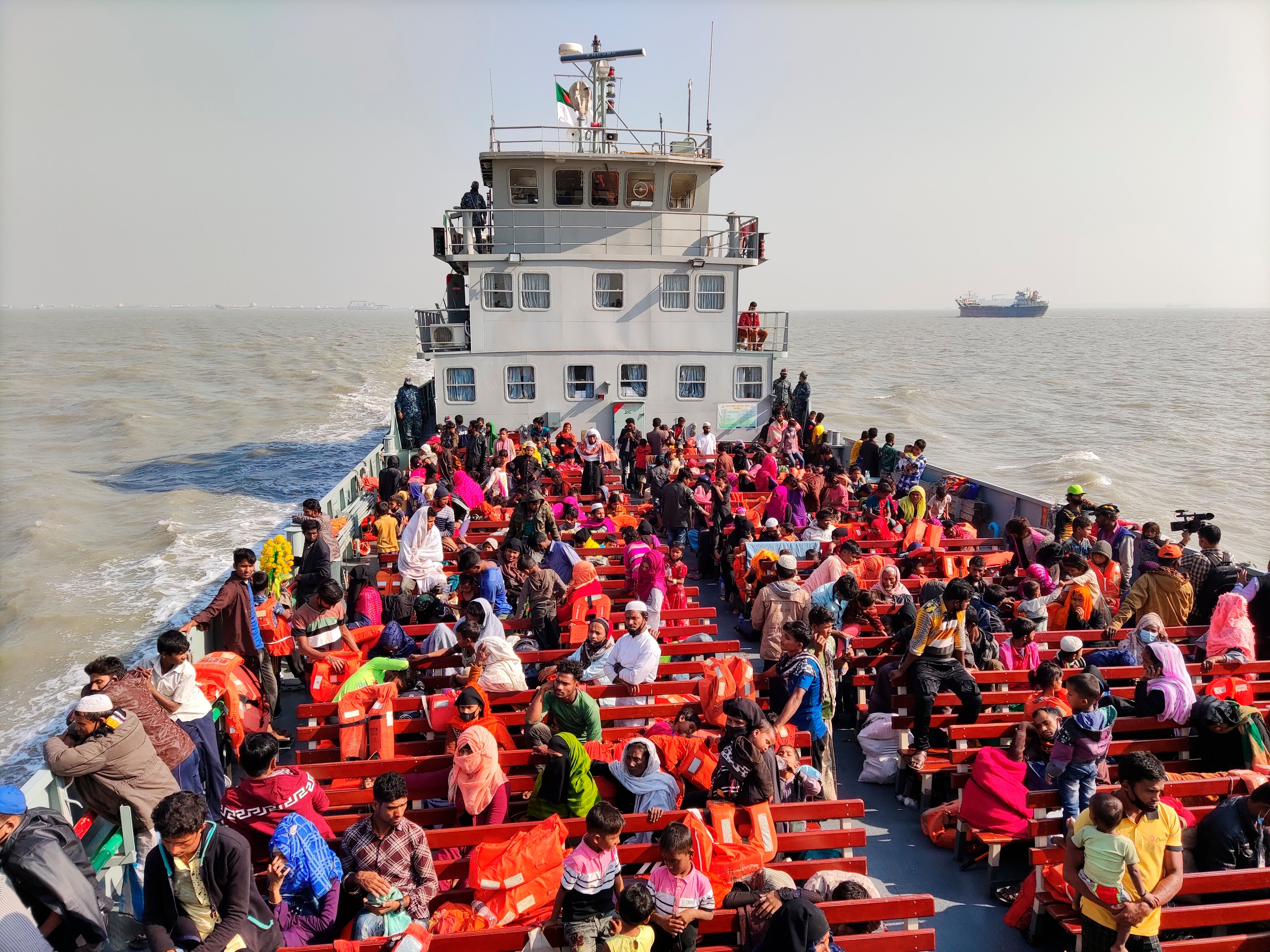Mounting fears for 100 Rohingya refugees ‘trapped and dying’ on boat adrift in Indian Ocean
Refugees on the boat have taken to drinking sea water in desperation, a human rights body says

The United Nations has called upon governments to urgently deploy search and rescue operations to locate a boat with up to 100 Rohingya refugees adrift in the Indian Ocean, some of whom have already died while others are in critical condition due to lack of food and water.
“The precise number and location of the refugees is unknown, and there are reports that many may have already lost their lives,” said Indrika Ratwatte, Asia-Pacific director for the UN High Commissioner for Refugees (UNHCR). Mr Ratwatte said the distress information was received on Saturday evening.
An Indian coast guard official told Reuters that the boat “has been tracked to an area off the Andaman and Nicobar islands.” The news agency reported that Indian navy vessels that were nearby had provided food and water to those on the boat, though their fate thereafter was not immediately known.
Arakan Project, a humanitarian aid group, told The News Minute that they were able to get in touch with the boat, which has a satellite phone. The crew told them that the boat was carrying 65 Rohingya women and girls, five children below the age of two and some 20 men.
“The Rohingyas boarded the boat south of the Bangladesh seaside town of Cox’s Bazar on 11 February and [it] was headed towards Southeast Asia when its engines broke down,” said Chris Lewa, director of Arakan Project.
Ms Lewa said the boat’s engines had stopped working around 10 days ago, which led it to drift into India’s territorial waters on Monday. Ms Lewa said there is no food or drinking water on the boat, which has led to the death of eight refugees.
“They are drinking sea water in desperation. That is why some of them are collapsing,” she said.
“Many are in a highly vulnerable condition and are apparently suffering from extreme dehydration. We understand that a number of refugees have already lost their lives, and that fatalities have risen over the past 24 hours,” Mr Ratwatte said.
“In line with international obligations under the law of the sea and longstanding maritime traditions, the duty to rescue persons in distress at sea should be upheld, irrespective of nationality or legal status,” he said.
The UN estimates that after sweeping counter-insurgency operations by Myanmar’s military in 2017, more than 700,000 Rohingya Muslims have fled to neighbouring Bangladesh and live in refugee camps. The international body has termed the atrocities committed on the community a form of ethnic cleansing.
“Instead of passing on responsibility to other states, governments in the region must immediately deploy search and rescue measures to assist those stranded in the vessel, who are in desperate need of food, water and a safe place to disembark free of discrimination,” said Saad Hammadi, Amnesty International’s South Asia campaigner.
“Too many lives have already been lost at sea as the result of countries refusing to assist Rohingya people on boats. Another repeat of those shameful incidents must be avoided here.”
UNHCR estimates that some 2,400 Rohingya people took similar perilous boat journeys in 2020, during which at least 200 of them died or went missing. There are about 600,000 Rohingya Muslims who still remain in Rakhine State in Myanmar, including 120,000 people in state-run camps.
Join our commenting forum
Join thought-provoking conversations, follow other Independent readers and see their replies
Comments


Bookmark popover
Removed from bookmarks